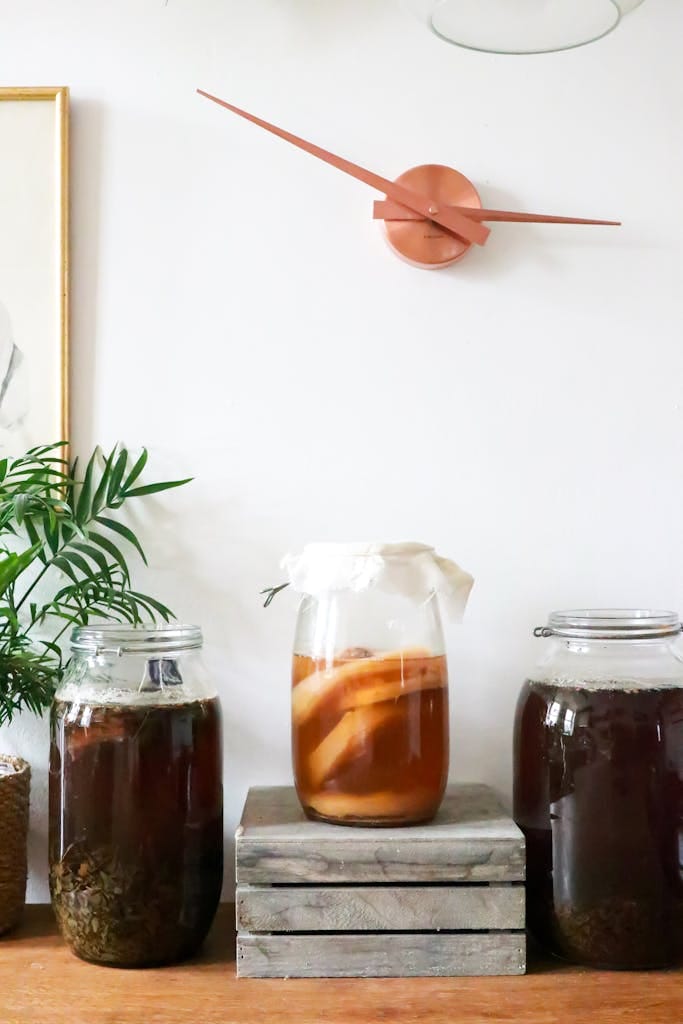FREE SHIPPING OVER $50
Gut-Healthy Foods Recommended by RDs: Add These to Your Diet
Your gut is more than just a digestive powerhouse—it’s the foundation of your overall health. A healthy gut supports your immune system, brain function, and even your mood. But with so much conflicting information out there, it can be hard to know what to eat for optimal gut health. That’s where registered dietitians (RDs) come in. In this article, we’ll share gut-healthy foods recommended by RDs that you can easily add to your diet. Ready to nourish your gut and feel your best? Let’s dive in.
Why Gut Health Matters

Before we get into the foods, let’s talk about why gut health is so important. Your gut is home to trillions of bacteria, collectively known as the gut microbiome. These bacteria play a crucial role in:
- Digesting food and absorbing nutrients
- Supporting your immune system
- Regulating mood and mental health
- Reducing inflammation
When your gut is out of balance, you might experience bloating, fatigue, skin issues, or even chronic conditions like irritable bowel syndrome (IBS). The good news? You can support your gut health with the right foods.
Gut-Healthy Foods Recommended by RDs
Here are the top foods dietitians recommend for a healthy gut:
1. Fermented Foods
- Why they’re great: Fermented foods are rich in probiotics, the “good” bacteria that support a healthy gut microbiome.
- Examples: Yogurt, kefir, sauerkraut, kimchi, miso, and tempeh.
- How to enjoy: Add a serving of fermented foods to your meals daily. For example, top your salad with sauerkraut or enjoy a bowl of yogurt with berries.
2. High-Fiber Foods
- Why they’re great: Fiber feeds the beneficial bacteria in your gut, helping them thrive.
- Examples: Whole grains (oats, quinoa, brown rice), fruits (apples, berries, bananas), vegetables (broccoli, carrots, spinach), and legumes (beans, lentils, chickpeas).
- How to enjoy: Aim for at least 25-30 grams of fiber per day. Start your day with oatmeal or add beans to your soups and salads.
3. Prebiotic Foods
- Why they’re great: Prebiotics are a type of fiber that specifically nourishes your gut bacteria.
- Examples: Garlic, onions, leeks, asparagus, bananas, and Jerusalem artichokes.
- How to enjoy: Incorporate prebiotic foods into your meals. For example, sauté garlic and onions as a base for soups or stir-fries.
4. Polyphenol-Rich Foods
- Why they’re great: Polyphenols are plant compounds that act as antioxidants and support gut bacteria.
- Examples: Berries, green tea, dark chocolate, red wine (in moderation), and nuts.
- How to enjoy: Snack on a handful of berries or enjoy a square of dark chocolate after dinner.
5. Bone Broth
- Why it’s great: Bone broth is rich in collagen and amino acids that support gut lining health.
- How to enjoy: Sip on a warm cup of bone broth or use it as a base for soups and stews.
6. Omega-3-Rich Foods
- Why they’re great: Omega-3s reduce inflammation and support a healthy gut lining.
- Examples: Fatty fish (salmon, mackerel, sardines), flaxseeds, chia seeds, and walnuts.
- How to enjoy: Add fatty fish to your meals 2-3 times per week or sprinkle chia seeds on your yogurt or oatmeal.
7. Ginger and Turmeric
- Why they’re great: These spices have anti-inflammatory properties that support gut health.
- How to enjoy: Add fresh ginger to smoothies or teas, and use turmeric in curries, soups, or golden milk.
8. Apples with the Skin On
- Why they’re great: Apples are rich in pectin, a type of fiber that feeds gut bacteria.
- How to enjoy: Eat apples as a snack or add them to salads and oatmeal.
9. Kombucha
- Why it’s great: This fermented tea is packed with probiotics and antioxidants.
- How to enjoy: Drink a small serving (4-8 oz) of kombucha as a refreshing beverage.
10. Olive Oil
- Why it’s great: Olive oil contains healthy fats and polyphenols that support gut health.
- How to enjoy: Use extra virgin olive oil as a salad dressing or drizzle it over cooked vegetables.
How to Incorporate These Foods into Your Diet
Adding gut-healthy foods to your diet doesn’t have to be complicated. Here’s a simple plan:
- Start Small: Add one or two gut-healthy foods to your meals each day.
- Mix and Match: Combine different types of gut-healthy foods for maximum benefits. For example, pair yogurt (probiotic) with berries (polyphenol) and chia seeds (omega-3).
- Experiment with Recipes: Try new recipes that incorporate these foods, like a quinoa salad with roasted vegetables or a smoothie with kefir and spinach.
- Stay Consistent: Gut health improves over time, so make these foods a regular part of your diet.
The Science Behind Gut-Healthy Foods
Still not convinced? Let’s look at the science:
- Probiotics: Studies show that probiotics can improve gut health, reduce inflammation, and even boost mental health.
- Fiber: A high-fiber diet is linked to a diverse and healthy gut microbiome, which supports overall health.
- Polyphenols: These compounds have been shown to promote the growth of beneficial bacteria and reduce harmful bacteria.
- Omega-3s: Research suggests that omega-3s can reduce gut inflammation and improve gut barrier function.
Common Mistakes to Avoid
Even with the best intentions, it’s easy to make mistakes that hinder your gut health. Here’s what to watch out for:
- Overdoing Processed Foods: Processed foods are often low in fiber and high in additives that can disrupt your gut.
- Ignoring Food Sensitivities: If certain foods cause bloating or discomfort, consider eliminating them and consulting a dietitian.
- Skipping Hydration: Water is essential for digestion and gut health. Aim for at least 8 cups a day.
- Relying on Supplements: While supplements can help, they’re not a substitute for a diet rich in whole, gut-healthy foods.
Conclusion
Your gut is the foundation of your overall health, and what you eat plays a huge role in keeping it balanced. By incorporating these gut-healthy foods recommended by RDs into your diet, you can support your gut microbiome, improve digestion, and boost your overall well-being. Remember, small changes can lead to big results over time.
Related Articles
- Sleepless Nights? This Late-Night Snack is Loaded with Melatonin and Magnesium
- Magnesium Magic: Top Picks for Women Over 40 and Their Health Benefits
- 7 Anti-Aging Foods That Experts Say You Should Eat Daily for Youthful Skin
- The 5 Surprising Nutrients You Need to Boost Collagen Production Naturally—#1 You Already Have in Your Kitchen
- Start Your Day Right: 10 Energy-Boosting Breakfasts You Need to Try







